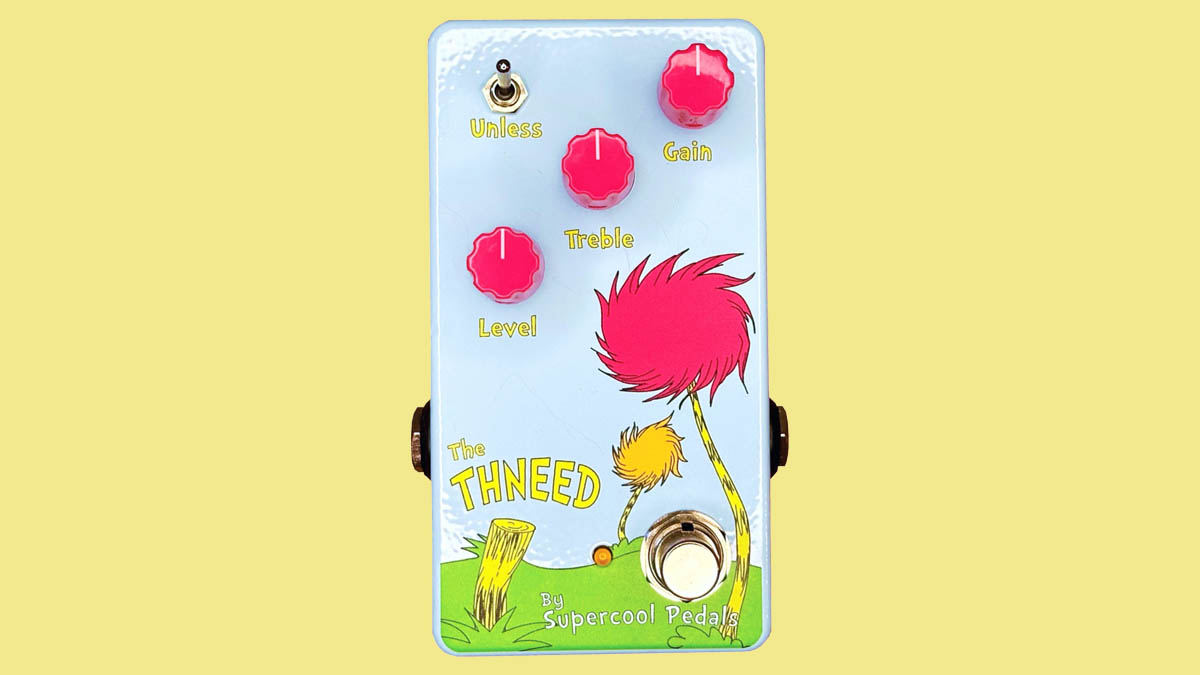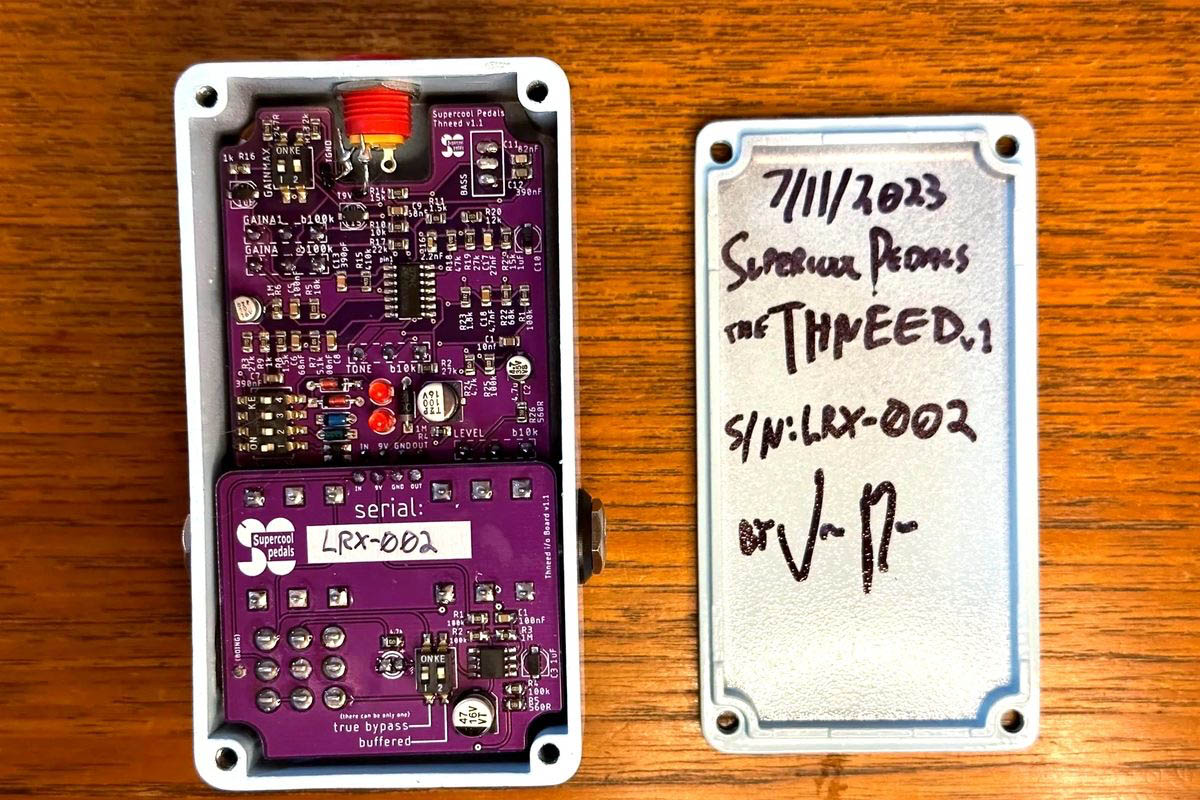Has your Klon gone? You might need the Thneed, the “highly customisable, light-to-mid gain overdrive” from Supercool Pedals
The Thneed is a transparent overdrive pedal that was inspired by the Klon but ain't no klone, and in terms of versatility this one hasn't fallen far from the truffula tree

Want all the hottest music and gear news, reviews, deals, features and more, direct to your inbox? Sign up here.
You are now subscribed
Your newsletter sign-up was successful
Supercool Pedals has unveiled the Thneed, a new overdrive pedal inspired by the legendary Klon Centaur but also by Dr Seuss and the need to do something different than just be A N Other Klon Klone.
As Supercool Pedals’ Jamie Muir notes in the video, that’s the last thing the world’s pedalboard needs – even if the demand is still there and new takes on the original are still coming thick and fast. The Thneed might take the Klon’s dynamic drive as a starting point but under the hood it is quite different, and Muir says he wants it behave quite differently when you send your electric guitar signal and start turning those dials.
There is no internal charge pump for a start; Muir says he finds them unreliable, noisy and don’t do enough to the circuit to make it all worthwhile, and there were workarounds that he could design into the circuit.

The Thneed’s controls setup reads Gain, Treble and Level, with a toggle switch cryptically titled “Unless” …Paging, Dr Seuss, but we’ll get to that. Gain controls the amount of op-amp drive in the signal, with diode clipping applied depending on how far you turn the dial – and how you configure the pedal’s internal controls. “Usually around the three-quarter mark is the sweet spot,” says Muir.
Treble is a shelf EQ that can with boost or cut frequencies above 1 kHz. “I like this guy at three o’clock just to use as a nice treble boost,” says Muir. And in the demo video, you can hear from the demo video that this adds a generous saucing of top end.
Finally, the Level dial controls the overall output of the pedal, and you can set up the pedal so it can boost your guitar amp into overdrive.
And so, the Unless switch. Well, this is all about the bass in the op-amp feedback loop, which is to say that it ostensibly controls how the pedal handles your low-end frequencies, but also adds to how much drive is going on with the op-amp because activating this and bringing in more low frequencies causes more break-up.
Want all the hottest music and gear news, reviews, deals, features and more, direct to your inbox? Sign up here.
Muir describes it as “kind of like a fun gain wild card switch” and that sounds like a fun thing to have. Cork sniffers take note: there are three types of diodes deployed here.
There are red LED diodes for a high-volume boost and amp-like break-up, rare germanium 1n34A diodes are in the mix too for warm mid-boosted tone, and then a pair of BAT46 Schottky diodes that are “just balls-out distortion” – and perhaps the secret sauce that make the Thneed more than a Klone.
Inside, you can switch between buffered or true bypass operation. Default mode is buffered. The first batch is sold out but you can pre-order the second coming of the Thneed direct from Supercool Pedals for CAD$219 (approx £129).
Jonathan Horsley has been writing about guitars and guitar culture since 2005, playing them since 1990, and regularly contributes to MusicRadar, Total Guitar and Guitar World. He uses Jazz III nylon picks, 10s during the week, 9s at the weekend, and shamefully still struggles with rhythm figure one of Van Halen’s Panama.
